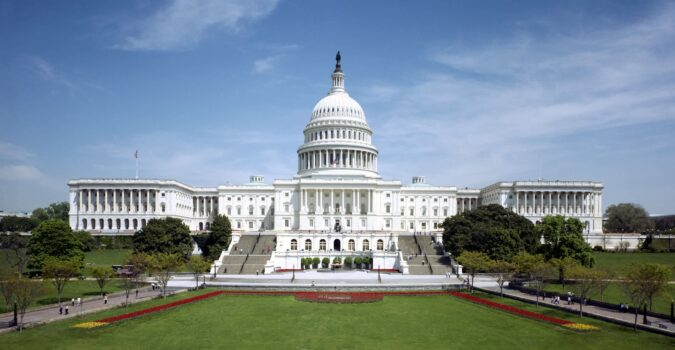Blog
The Future of Crypto: A Conversation with Brian Amoah

March 16, 2022
Brian Amoah, managing partner at Chicago Crypto Capital, joins the Alariss Global podcast to discuss cryptocurrency, crypto regulations, and the future of crypto.
Hi Brian, it’s great to meet you.
Hi, how are you?
Good. You advise on cryptocurrency at Chicago Crypto Capital. Tell me about cryptocurrency and why it is getting so much attention.
The reason why cryptocurrency is getting a lot of attention is because it is an asset class, one of the first asset classes that’s been created since maybe the forex markets and before that the commodity market. So it is a different way to transact, and I think a lot of people are just now learning about the various ways in which it can change really how people conduct business with each other.
The current financial system seems to work pretty well for a lot of us. What additional value would crypto offer that the current financial system doesn’t offer?
So the current system is–it works, but like any new technology, it has its gaps. What cryptocurrency, as far as transactions, what it can do for a lot of the economy is it allows multiple people or two different parties to transact with each other without necessarily trusting each other, without needing a third-party intermediary. You’re able to audit transactions without having to get perhaps an affirm. It’s easier to track things, and it’s easier to conduct it with two parties without necessarily having to depend on banks or other central authorities. So the current system right now is just highly dependent on us trusting banks or other intermediaries. By decentralizing some of these institutions and lowering, perhaps in some situations, the ability for those institutions to manipulate them and you’re giving greater access to just individuals to participate in that system.
There are a few people like Josh Barro who have criticized crypto for supposedly not having fundamental value behind it. What is your response to critics of crypto?
Critics of crypto are like critics of any other technology. Any time you see a new technology, you’re going to get someone that’s critical. We heard some of these same criticisms when the internet came about. Why do we need the internet? We have books, we have newspapers, we have regular mails, we have stores, we have a lot of other ways to do this. Whenever a new technology comes out, I think it brings criticisms because when people in the markets, the world is trying to figure out how these technologies work, it’s going to be inefficient, it’s going to be a learning process. So depending on how we look at it going in, you’ll always be able to find things that are wrong. The critic you mentioned, I would imagine, is going to point out flaws, but I always like to point out to those people, usually most of the flaws that you point out are–it’s less about, with any new technology, it’s less about finding whether or not that technology is going to solve every problem, but find out how to integrate it with the way we work right now, which problems right now that could be solved. A good example I would say is we don’t cut bread with lasers, right? Doesn’t make sense, we still have a knife. So if you’re going to criticize the laser and say it’s causing too much energy, then yeah, that’s not an appropriate use for this. Many times, when people are criticizing it, I find that they’re just applying the new technology to a place that didn’t really need it.
In recent months, China has effectively banned cryptocurrency. How will this impact crypto?
You know, the banning of crypto from China’s side because they’re so big in the mining community, it really just changes, as far as the mining rewards and who is profiting off of it, think of it like the manufacturing side is just moving it over to different locations. One of the strengths and one of the ideas behind cryptocurrency is it’s decentralized. So because it’s decentralized, you’re not dependent on one entity to go and control a market or control a supply like central banks do in traditional finance. So this is actually the type of situations in which cryptocurrencies were created for. If China decides that they’re not going to do this, then the slack is going to be picked up from other areas, it’s going to move to other countries, other individuals outside of there. So price action you’re going to get, usually whenever China bans you’re going to get some short-term pressure, but ultimately cryptocurrencies weren’t designed with the need that one country is going to produce it or one country is going to control it. In fact, it was designed to be decentralized.
There’s a growing trend of Bitcoin miners leaving China for Texas and other parts of the US. Why do you think they’re moving to the US, and what impact will this have on the crypto space in the coming years?
Yeah, so there’s several reasons. One is the unstable nature of the regulation in China, their bans that come seemingly randomly, and another is energy. The way that transactions are confirmed for Bitcoin and I assume, it sounds like you’re talking more about Bitcoin than Ethereum, a lot of the older cryptocurrencies are based off of what is called proof of work. And proof of work, all it means is you’re really confirming transactions, and you’re using energy to do that. Energy is fairly cheap in the United States, you know, we have a lot of domestic output in energy, and China’s a country that inputs a lot of energy. So outside of regulation, the United States is a stable market, we have great infrastructure, not great, sporadic, but certain areas have good to great infrastructure as far as connecting to the internet. And our energy costs are relatively low to the rest of the world. So it makes it a nice place, and Texas is, probably a reason why they’re going to Texas, Texas is a place where they’re a net exporter of energy. So if the biggest cost for these transactions is energy in itself outside of the hardware, the biggest ongoing cost is energy. You’re going to look at places like Texas and other places that have access to cheap and efficient energy.
Do you think that the US can become the world’s capital of crypto? What does the US need to do to make that happen?
The capital of crypto again is going to be hard because it is decentralized. It’s really hard not to be dominated by any entity, whether it be a government or institutions. As a leading force, it all depends on regulation. You’re really going to need some sort of regulation where the average person and not just the average person but institutions can be comfortable putting large amounts of capital and know how that’s going to be treated tax-wise, regulatory-wise, legally. So that’s the biggest hurdle right now, the United States climate is more absent really any sort of directive. So if the United States, with our technological background and our actual money, we are positioned to be in a very, very good spot to control a lot of the direction of the cryptocurrency market. But it’s going to be highly dependent on whether or not they get the regulatory framework that makes it possible. We’re seeing some states, Colorado you may have just seen, are accepted for tax, they’re accepting crypto payments in taxes. We’ve seen other countries do that, so allowing people to actually use these currencies in a way outside of purchases here or there or sending money to others, and we’re seeing a little bit of real estate but to be able to put large real estate purchases for a big pension fund, maybe to put more funds in there and be confident that there’s going to be a regulatory framework is going to be the biggest hurdle. So we’re really looking at the federal government because states can only do so much, currency needs to be able to go across state borders, and there needs to be an overarching federal framework before we really see the United States take a leading position in this area.
What kind of regulatory framework do you recommend at the federal level of crypto?
A regulatory framework right now, there’s two different things. Right now not punishing innovation, cryptocurrency is part of a larger technology blockchain, and with blockchain technology, some of these programs and use cases of them are not purely financial, but they treat it as such. So if you’re making a software that maybe makes it efficient for, let’s say you to deliver goods across the United States and you may have this blockchain that lets people use it as an inventory system, but the government’s treating every transaction as a financial transaction and taxing it, it really, really, stifles the growth of that technology. The equivalent would be like you taking software and saying every time this uploads or downloads, we’re going to tax it. It really doesn’t make sense; it makes sense if you’re looking at every blockchain as a cryptocurrency. People think of blockchain and cryptocurrency as synonyms, as equivalent things because at first, the first blockchain was a cryptocurrency, Bitcoin was a cryptocurrency, is a cryptocurrency, it’s used for financial transactions. A lot of the earlier ones, Litecoin, Ripple, were all used to transact money. When you get down even to number two cryptocurrency by market cap is Ethereum, and Ethereum is really just a glorified software environment, it’s a programming environment. So what they can do is a wide, wide variety. I mean there is gaming in there, probably NFT, arts, publishing arts, you have music, you have anything that traditional software can be done. The difference between traditional software is that it’s on the server, it’s on the computer and it’s being sent out; with blockchain, it’s really being housed on multiple computers. So to treat it as a financial currency is really what’s making it very hard for it to grow.
Okay. So many countries, including the US, are planning to regulate crypto more. How will this impact the industry?
Contrary to what a lot of people think, I think that’s actually going to expand–it’s going to expand it and it’s going to do two things. First of all, cryptocurrency, because it’s unregulated, it’s almost like the Wild West. Anyone kind of does whatever, there’s no overarching regulatory body that you can go to. Perhaps people hear about a lot of crypto scams because who’s going to be following cryptocurrency – is it going to be the CFTC for commodities? Is it going to be the consumer agencies in each different state? So the fact that we don’t know who’s supposed to regulate this allows for a lot of bad actors to enter in there. And because there’s no regulatory environment, what it does is it keeps the good actors from being in. I mean I’ve talked to a lot of big institutions that would love to get into cryptocurrency, but they say hey, we don’t even know who the regulatory body is, we don’t have counterparties, we don’t know–who do we file our paperwork with? So we just are staying out. Big business, big institutions need regulations, so individuals are going to need regulatory bodies to protect themselves when they get in there, they don’t have the ability to go in there and assess these things. I mean we’re a company, and we even have difficulty sometimes getting some information and data about projects. So a regular individual just really has no chance, there’s a lot…regulatory body to go to, let’s say something goes wrong and the big institutions are just not going to get into something that’s seen as the Wild West. So regulation is going to be needed for it to go from these little projects in people’s basements or garages into something that you’re hearing maybe big pension funds and big hedge funds and state bodies are getting into.
What kind of regulation do you think is needed?
What type of regulation? First of all, who is over any particular–who regulates cryptocurrency? So before we can even determine what regulations, we need to determine who is going to regulate this. Because it’s going to be a give and take, you’re going to have consumers, you’re going to have the actual producers, you’re going to have all the market participants. That negotiation can’t even begin to happen if we don’t know where it’s going to happen. Is it a currency? Is it a commodity? Is it just a regular software? Until we understand is it–maybe it’s both, maybe there’s classifications where some of them are securities and the SEC will deal with them, perhaps some of these are just commodities, some of these maybe are just collectibles. If you look at NFT and they’re regulated by the consumer protection agencies. Once you’re in there, it would be easy for me to sit here and say what would help me as an advisory firm, but as with everything else, you’re going to have a lot of market participants in there. Governments have different interests in the technology as a consumer does, as maybe investors do, as maybe technologists do.
So I guess first, I don’t want–and there’s a couple things I would like to say. I guess let me address the first issue, and then I can touch on some specific things I think probably all people can agree with. First, agreeing what is what and how to define each project is going to be crucial. I know on the financial side, the taxation issue is an issue, treating movement of stuff or exchanging of stocks is very, very complicated on the tax side, and it happens sometimes in a way that makes absolutely no sense when you actually look at it. But you’re trying to equate this to the stock market and it may seem like–if we were swapping Bitcoin for Litecoin or something and they’re saying that’s a taxable event, well you’re maybe only doing that to confirm the transaction on the software, it may not only make so much sense, the government may not even really, if they understood it, consider that to be a financial transaction, but it could be treated as such right now.
So clearly defining this legally, how these things are defined, would be a great start. What I would like to say is get the tax side cleaned up and really, really have a framework in which we can classify something as either a financial technology, or commodity, or a software application. Once you get that started, I think a lot of the decisions on how to treat these become a little bit more clear. We have a lot of case law that has dealt with how software is dealt, we have a lot of case law that’s dealt with how securities are dealt, we have a lot of case law that deals with how commodities are done. So broadly organizing these things into – we don’t necessarily have to start with the ground up and treat this like all new things. A lot of the way it behaves, the only difference is it’s on several computers instead of one. So we’d really be dealing with the issue on the edges instead of starting from the ground up and having decades–we’re talking about the SEC–it started in their 30s from the top of my head–we have almost 100 years of case law that’s been built on, it’s been litigated, it’s been going back and forth. We don’t really have to start in the back, you know commodities as well, going in, and then consumer agencies as well. So we don’t really have to start from scratch, I think it will really accelerate the growth of cryptocurrency if we can just jump right in and start participating in the general market on equal terms without having to rehash some things that really have been fought over, discussed, and settled on over the past almost century.
Crypto prices have gone up a lot over the past several years, but tend to be very volatile in their price movement. How will the incoming regulations impact the prices for crypto?
I think regulation is almost less of an issue on prices than you would think. It’s going to have an issue, obviously some regulations are really going to increase the prices or decrease the prices, but the volatility in my opinion is more of a factor that the whole market is in price discovery. No one really knows how to value it, and the best analogy we can have is the internet. Me right now, I’m old enough to remember the .com-verse. You know we had .com, I don’t know if you remember, anybody that had a tech company in ‘98, ‘99, 2000 could become a billionaire regardless of what your company did. But if you look at the top companies in 1999, let’s say the last quarter of 1999 and looked at them now, most of them are gone. They went from zero to a billion dollars back to zero. That’s an extreme amount of volatility that we kind of forget about. The stock market, in 1930, we had the Great Depression, the whole thing retracted. I mean people became millionaires overnight and then the whole thing collapsed. Very, very extreme price volatility.
So once you get back, you kind of tend to forget about it, the car technology. Let’s get out of the financial thing. Look at the car market. When you think of cars as this big, stable legacy industry, but there was a countless amount of car companies that were around initially and they just kind of faded out. So as long as the technology goes forward, you kind of understand where the technology goes. It’ll even out, so the volatility is less of a function, I believe, of regulation, more of a function of people have no idea how to price these things and they’re just really kind of guessing. You get to a point where people hear about it and come in waves like in 2018, last year when people hear about it, they kind of rush in, you get kind of a lot of people trying to get rich quick, but that’s almost every industry. Once you kind of shake out the early adopters who are boom or bust and you start going to actual applications, you’re going to see an environment I would say in 10 years from now when you look at a cryptocurrency and be able to look at its market cap and be able to look at its market share. You can have a lot of the same companies doing analysis that have the stock and be able to kind of know in economics class be able to say here’s how you look at a cryptocurrency, these are the metrics, these are what you’re looking at, even now right now it may seem volatile to other people, but these are people who are hearing of currency, investing in it because they think it’s going up.
Now if you have a whole bunch of people operating on such a basic, basic level, you’re going to get extreme volatility. Or you see a lot of companies like ours where a lot of these industries–we’ll look at the token economics. What is the total supply of a coin? What is the level of centralization of that coin? What is the actual market share of that coin versus its competitors? Whether they’re competitors in the crypto space or competitors in the non-crypto space. And it seems less volatile to us when we see growth that’s going to be more aligned to the actual fundamentals of the coin, but fundamentals take time to develop in all industries. Going back to the stock market, at the stock market boom, we’re 20 years out and we still see companies go boom and bust, at less frequency. So the volatility is more of a factor of the youth of the industry. I don’t know if it’s going to be regulation, I mean regulation is just going to kind of determine the participants, but we’re going to see a lot of the volatility going forward until people really get an understanding of the technology and what the technology becomes.
Right now we’re still at speculation, most of these technologies are at the beginning, you look a little bit young, I don’t know if you know–people didn’t really understand, I can remember we had huge corporations like McDonald’s for instance, their web page would say welcome to McDonald’s and that was it and it was like, well what’s the point of this? And then now we can go to McDonald’s and order something on the app, on your phone, by the time you arrive there it’s already there, then they can track their users and it helps them with inventory, it helps with discounts and rewards programs and if you would have told me in 2000 that I would be ordering McDonald’s food from my cell phone, that would’ve been just something I couldn’t comprehend.
So we’re really at the beginning of this, it’s almost like asking someone in 1997 what are we going to do about the volatility of the internet? You really just have to do let the bad projects go bust, the good projects are going to make people rich, and the people that are in the markets speculating are going to–it’s going to take some luck, but it’s also going to take some determining which one of these applications are going to be here 20 years from now, 30 years from now, 50 years from now.
That’s great. What do you think crypto will look like 10 years from now? Will it be an integral part of our daily lives?
I think it will be, and one of the ways I see crypto interacting with it is maybe like a company like Oracle right now. Oracle is a company that the average person interacts with dozens and dozens of times a day, but they couldn’t tell you that, right? Because it’s on the backside of the infrastructure. You go swipe your card, and you don’t know what’s going through that database or that technology – the telephone company is using it, it’s underpinning a lot of the core technology. So if cryptocurrency–cryptocurrency is the buzzword but you really have to look at it more as blockchain, whereas cryptocurrency is a subset of blockchain. A lot of these transactions are going to be integral without the average person necessarily knowing.
I can give you an example, you may be able to buy insurance, house insurance, renter’s insurance, you go in there, you go into Allstate or you go into one of the companies to buy a policy and that’s it. So you think okay well I just did this, nothing really happened. But it could get to a point where a company like Allstate and all these other companies are using blockchain, taking their whole base of people and putting their whole pool and distributing all the transactions, the payouts, the smart contracts, which we never really talked too much about this but smart contracts are the software that is running behind this. So these companies could be using the smart contracts in the back, you’re just buying insurance at the end of the day. How your insurance is priced, how it’s paid out, instead of having an insurance claim go through and audited, that’s going to go back and see what’s happened here, it’s going to run through the smart contract and their automated processes in the background. You’re going to see a lot of middlemen cut out, logistics right now we’re seeing blockchain being adopted.
So if something’s moving from Point A to Point B to Point C, then maybe a person is checking it in at every single point and then releasing money there based off of it, that would be an automated process. You’ll see a lot more automated processes occurring in 10 years, the only difference is–you don’t really see the person at the checkpoint. If something arrives at your grocery store, you don’t know that this food stopped in six different states and was checked in at different points, you may know in the background but you don’t know who that particular inspector is. Instead of that inspector being a person, it’s just going to be on the blockchain. So it’ll be almost an invisible hand. We’re going to see a lot more complicated transactions being done, I think we’re going to see a lot less fraud in the marketplace because the thing about blockchain is you have a public record. People are going to be able to, yes something may slip by, but you can always go back and catch these things, so I think we’re going to have the ability to interact with other people that you don’t know. Be able to do a lot more complicated things with them. But this world that everybody’s paying for stuff with Bitcoin, Ripple, or Litecoin, it may happen, I don’t know that that’s going to happen.
Like your earlier question, the financial system works. If you just need to go and buy the laser and bread thing, we don’t cut bread with laser because it’s not needed. If you want to go and buy a sandwich from the store, you don’t need to go on a blockchain or hand them a piece of paper. But let’s say I will buy this sandwich if I have–well that’s the sandwich, that’s probably bad. But I’ll buy this insurance, if this thing happens, I get paid off, these sort of things, complicated things–I can’t have a person that’s going to figure out all these different scenarios, we have to keep transactions pretty basic. If you go and hand someone a dollar, that’s easy, but are you going to hand someone a dollar, hold this, only pay this guy for that sandwich if I come to this store before noon and if I walk into this store, then you can go and pay him. And if not, if I go to a different place, then you can go and take that money and go pay them. Or let’s say if I walk into a barber shop and went to go pay them, all these steps, if I do this and then do this, these are kind of complicated things that really wouldn’t make sense with traditional finance. But a lot of automated behavior, a lot of complicated multi-party behavior, contingency transactions, are made possible with people you don’t trust, don’t know, may not trust, and may never know. You’ll be able to deal with people like that without having to physically go and give it through card or cash somewhere.
That’s great. Is there anything you’d like to add?
Yeah, I would like to say for everybody, when you think about cryptocurrency, I want people to think about cryptocurrency in the context of blockchain. Realizing that cryptocurrency is just transactions on the blockchain, the technology itself, meaning you interact with other people. We interact with people a ton of times a day, I mean you’re going to interact with people all the time. Money is a convenient intermediary, but it is almost–the way money is used right now is just a medium into the way we interact with people because it’s a nice base. One dollar equals this–you just have to frame how everything works with a dollar. You come work for me, it costs you this amount of–just pick the amount that it’s going to cost for you to come work for me and I’ll pay it out. So I’m paying you for your time. I want this apple. Well, it costs you this much to grow it, to ship it, we figure that out, then you can do it.
So money right now is the intermediary. It’s because that’s the best thing we have. If we think about blockchain and being able to sort of put…as something, whether it be fraud or how do we calculate this or how do we go back and check, this is something that blockchain could very easily solve going in there and trying to understand how blockchain, how everybody can come in and one person can very easily audit it, no cost, and that’s the transaction that, money, yes there’s a money component in that because you have to pay an auditing firm to use their time to go and manually check all the votes. To even have a vote we have to pay money for a voting machine, check the voting machine, keep up the voting machine. So money is being used in all these transactions, but it’s not necessarily a financial transaction in there.
So I just want people, when they think of cryptocurrency, yes it has a value, but don’t let the fact that there’s a price next to, let’s say Ethereum, cloud what this is doing. This is almost the same as saying the value of the internet is the stock prices, when anyone can tell you the value of the internet is the convenience of it, it’s the ability to access information at a fingertip. It’s the ability for you and I to be able to have this conversation without us being right next to each other. I can look at you, you can hear me, you’re going to take this, you’re going to disseminate it to all the people in your network. That’s what the value of the internet is. Now someone can go out there and say yeah, well Zoom has this stock price, so this is the price of Zoom, but that’s kind of a very, very basic way of looking at the internet. Just to say, unless we don’t solely value stocks or value the internet by its stock price, I would really want people to not value cryptocurrencies and blockchains by what it’s trading on; it’s really about disseminating information without needing to go through one person. It’s letting everybody come into disseminating information, let’s say it’s democratizing, it’s decentralizing the whole process of distributing information.
That’s great. Well it was great to talk to you, thank you so much for your time.
No problem, so if anyone wants any other information, go to Chicago Crypto Capital, we can answer some other questions for you guys. Anything from security to markets to software projects. So let us know if you have any questions, thank you for having me Bonnie, it was a very great conversation. Let me know if you have any other questions in the future.
I will, thank you.





